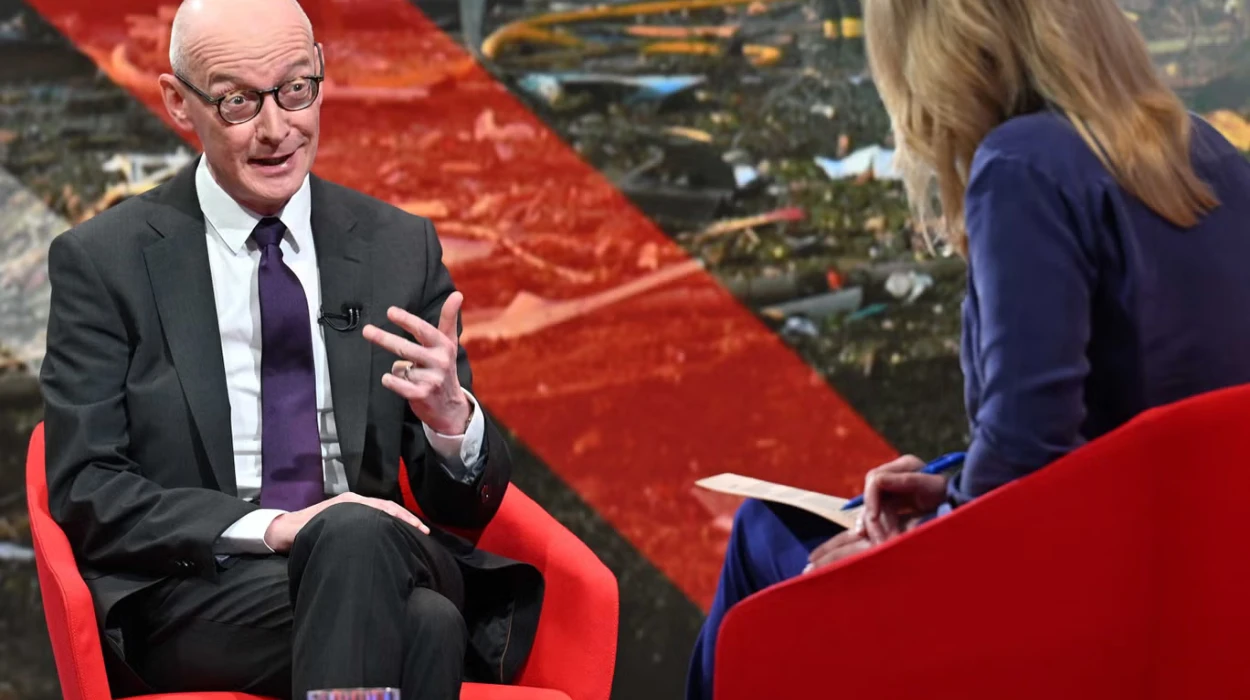UK (Parliament Politics Magazine) – The UK government plans to restrict trans workers from using gender-specific toilets, aligning with recent Supreme Court and EHRC rulings on biological sex.
As reported by The Independent, a Cabinet minister has suggested that trans employees will be banned from using restrooms matching their gender identity.
Pat McFadden argued that the decision is the “logical consequence” of the Supreme Court landmark judgment on gender and follows interim guidance from the equalities watchdog.
According to guidance from the Equality and Human Rights Commission, trans women are prohibited from using women’s facilities in workplaces and public services such as stores and hospitals. This restriction also applies to trans men, who are assigned female at birth, from using male toilets.
What did Pat McFadden say about the government’s plans for trans people using gendered bathrooms?
In response to whether the government would restrict trans workers from accessing gender-specific facilities, Mr McFadden said,
“Yes, that’s the logical consequence of the judgment and the guidance that’s come out, that people use the facilities of the biological sex. That’s what the court said, and that’s what the guidance has said.”
On a question of whether the government would prevent trans people from using restrooms that align with their gender identity, he stated,
“Like any big organisation, we will react. But look in reality, when you say ban, am I going to be standing outside toilets? I’m probably not. There isn’t going to be toilet police, but that is the logical consequence of the court ruling and the EHRC guidance.”
What did the Chancellor of the Duchy of Lancaster say about facilities and trans rights?
The Chancellor of the Duchy of Lancaster expressed hope that ‘everybody is treated with kindness,’ stating,
“This has been a debate where there are very strong feelings around it, but the important thing of the last week is the court has given clarity about facilities.”
What did the EHRC’s new guidance say about transgender access to facilities?
According to the EHRC, trans people “should not be put in a position where there are no facilities for them to use.”
The EHRC stated that the guidance was published in response to numerous inquiries about the ruling and its implications.
The guidance also mandates that schools offer single-sex changing facilities for boys and girls aged eight and above, while also suggesting that “alternative provisions may be required” for trans students.
It adds that trans girls “should not be permitted to use the girls’ toilet or changing facilities, and pupils who identify as trans boys (biological girls) should not be permitted to use the boys’ toilet or changing facilities.”
The watchdog clarified that sports clubs and other groups with 25 or more members are permitted to be single-sex, either for men or women.
The guidance states that clubs “can be limited to people who each have two protected characteristics,” which would prevent trans women from joining a lesbian women’s sports club.
Following the Supreme Court ruling, the watchdog is working on a detailed code of practice, which it intends to submit to the government for ministerial approval by June.
What did the Green Party say about EHRC’s guidance?
The Green Party called on the EHRC to pull the guidance, describing it as “ill-considered and impractical,” and warning that it “leaves many unanswered questions about how services will be provided in a way that meets trans people’s needs.”
Co-leaders of the party Carla Denyer and Adrian Ramsay stated,
“As it stands the guidance is likely to cause both distress to the trans community and further confusion to employers, businesses and service providers who are trying to understand what the supreme court ruling means for them.”
They added,
“In particular, this guidance could put trans people at risk of discrimination in the workplace, and is overly prescriptive in a way that seems to fly in the face of the tolerance that we value in this country. For example, it doesn’t seem right that a lesbian organisation or space that wants to include trans women should be prevented from doing so.”
What did Ed Davey say about the EHRC’s guidance on trans rights?
Liberal Democrat leader Sir Ed Davey raised concern that there are ‘lots of questions still to be answered about how this is enforced’ regarding the guidance.
He argued that the issue requires a “thoughtful discussion” and stated,
“We want to ask more questions about this, because we do need answers. Lots of people are confused. Lots of people are quite worried and anxious.”
What did Jaxon Feeley say about the impact of the Supreme Court ruling on single-sex spaces?
Jaxon Feeley, a trans campaigner, warned that the Supreme Court ruling will lead to more danger, not safety, in women’s single-sex spaces, adding that it will be impossible to enforce.
He said the focus on biological sex could lead to problems, including forcing trans men into women’s spaces like bathrooms and changing rooms.
The campaigner stated,
“If I walk into a [women’s] toilet now and say: ‘Well, I was assigned female at birth’, people are not going to be happy about that. I feel like people are going to be quite intimidated by that.”
Mr Freely added, “It not only obviously puts [biological women] in a difficult situation, but it also allows any [cisgender] man to walk into any so-called official single-sex space now and say, ‘Well, I was assigned female at birth.’ How are you policing that? You can’t police that.”


